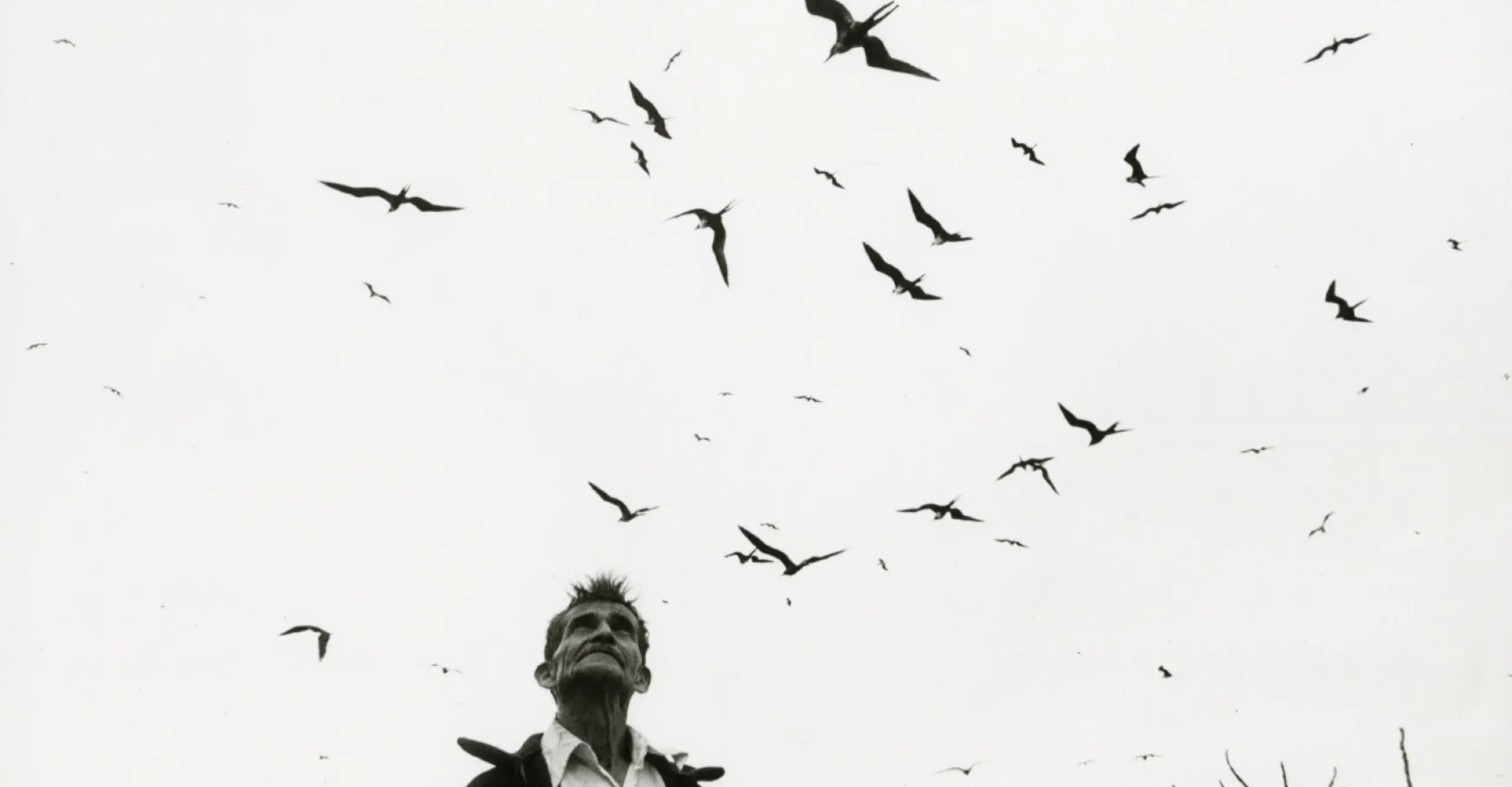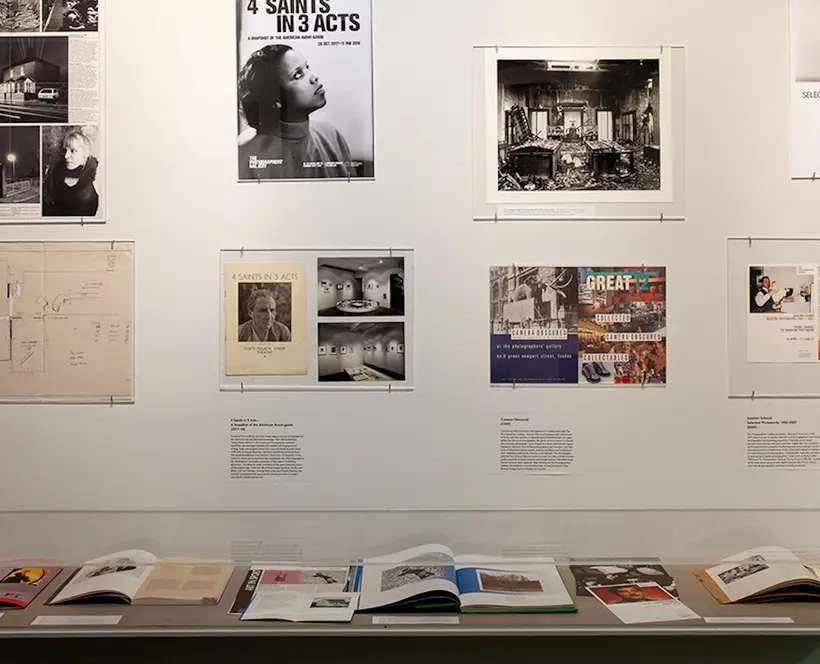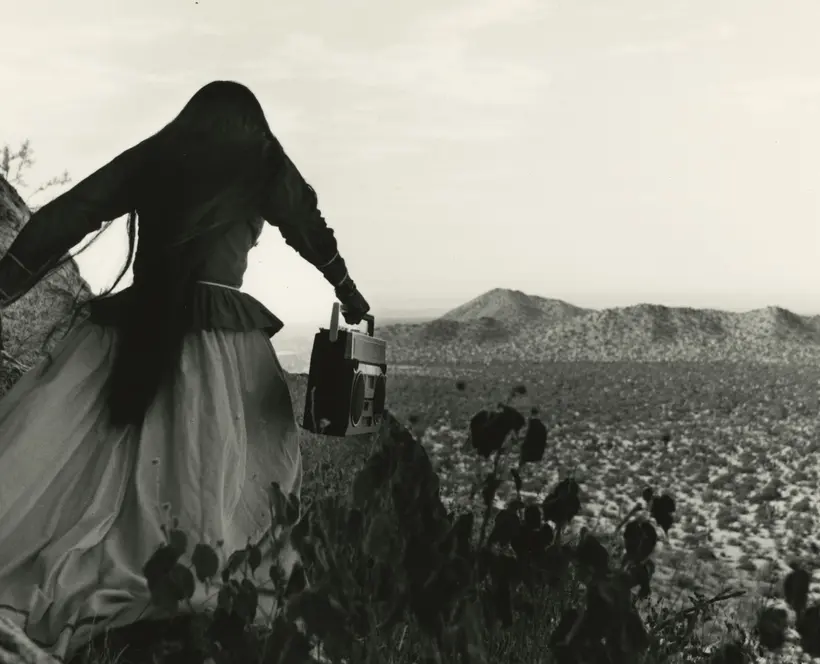Taking place across six weeks, this course examines the diverse uses of the medium in the region and asks pertinent questions about its connections to global practices and concerns. Using Graciela Iturbide as a starting point, we will look concepts of authenticity, issues of cultural appropriation, and at the legacy of transnational avant-garde movements, thinking through, for instance, somewhat stereotypical associations with surrealism and (magical) realism.
Iturbide has gained significant recognition in Europe as one of the most prominent Mexican – and Latin American – photographers. And yet her work is often perceived through an aesthetic, or sometimes even exoticising, lens.
In contrast, this course prioritises contextual and historically informed interpretations of Iturbide’s work, positioning it alongside her contemporaries and other emerging voices in the field. This layered approach enables the exploration of her work’s deeply personal valences and poetics with more immediate concerns, creating a rich web of meaning rooted in its historical and geographic context.
Following an introduction to Iturbide’s practice in the first week, each subsequent session will open with an exploration of a specific body of work or key theme that has been central to the artist’s career.
Led by curator and art historian Dr. Ileana L. Selejan.
Course format
Taking place weekly on Zoom, sessions include a blend of lectures, group discussions and presentations. Participants are provided with lecture slides and a list of resources for further study.
Who is this for?
Open to all who are interested in photography and art. No prior knowledge necessary.
Details on how to access the sessions will be confirmed upon registration. Please check your junk folders if you haven't received an email from TPG staff confirming your place.
Schedule
Week 1: Between the Eye and the I, Photographic Singularities on Wed 26 Jun
In this first session we begin exploring the renowned Mexican photographer’s career, gaining an overview of her life and work. We will consider Iturbide’s oeuvre in relation to Latin American photography and broader, international developments.
Week 2: Modernist Ideals and Counterproposals on Wed 3 Jul
In our second session we look at the legacies and genealogies of photography in Mexico and Latin America, taking into consideration the impact of figures such as Manuel Álvarez Bravo. We will also touch on Mexico’s allure to artists, migrants and intellectuals like André Breton, Leon Trotsky and Tina Modotti, among others. This week’s discussion will address notions of “high art” in relation to vernacular photography, and key concerns around national identity, urbanisation and the influence of modernism.
Week 3: Indigenous, Black and Mestizo Identities on Wed 10 Jul
Starting with a discussion around Iturbide’s lifelong interest in working with Indigenous communities in Mexico, and touching upon her work with the Chicanx populations in East LA, this session considers questions of identity in relation to race, ethnicity and the nation in Mexico and Latin America more widely. Examples of 1960s to more recent photography addressing similar concerns will also be examined.
Week 4: Documentary, Against Tradition on Wed 17 Jul
This session places Iturbide’s work in conversation with the tradition of documentary photography, exploring formal qualities and socio-political considerations alongside. What role has social documentary had in Latin America and how does its history intersect with conversations on decolonisation, positionality and revolutionary ideals?
Week 5: Feminist Interjections on Wed 24 Jul
Why have there been no “great” women photographers? This week we examine Iturbide’s work through a feminist lens, contextualising her output within a tumultuous period in Latin American history. We consider, too, parallel developments such as body art and conceptualism, and their impact on contemporary photography.
Week 6: Queering the Canon on Wed 31 Jul
Building on our conversations around gender and identity, this final session will address queerness in Latin American photography. We will begin with a discussion of Iturbide’s portraits of Magnolia, exploring the complexities involved in photographing queer bodies and the subjectivities at stake. Notions of self-representation will be a key focus, as we examine works by photographers and artists including Laura Aguilar, Claudia Jares, Lukas Avendaño and Elyla.
BIography
Dr. Ileana L. Selejan is Lecturer in Art History, Culture and Society. A member of the PhotoDemos research collective, she is an Honorary Research Fellow in the Department of Anthropology at University College London, where she was previously Research Associate and contributor to the European Research Council (ERC) funded project, ‘Citizens of Photography: The Camera and the Political Imagination’. Other previous appointments include: Research Fellow with the Decolonising Arts Institute and Associate Lecturer at Central Saint Martins, University of the Arts London.
As the Linda Wyatt Gruber ’66 Curatorial Fellow in Photography at The Davis Museum at Wellesley College, she curated the exhibition Charlotte Brooks at LOOK: 1951-1971, amongst others. She received her PhD in Art History from the Institute of Fine Arts, New York University, and was granted the 2012–13 Joan and Stanford Alexander Award from the Museum of Fine Arts Houston for her research in Nicaragua. She has held research and teaching positions at various institutions including the Photography and Imaging Department at Tisch School of the Arts and the Art History Department at New York University, Parsons School of Design in New York, and the Fine Arts Department at West University, Timisoara, Romania. Dr. Selejan is the co-curator of the 2024 edition of BredaPhoto biennial.
Bursaries
A number of partial bursaries covering 50 per cent of course fees will be awarded on a first come basis. Applicants who wish to be considered for a partial bursary should submit a statement (max. 500 words) to projects@tpg.org.uk, outlining how Dreams, Desires, Lives: Latin American Photography would contribute to their professional development. Successful applicants will be notified within a week of submission.
We actively encourage applications from groups who are currently underrepresented in the cultural sector in the UK. This includes people who identify as D/deaf, disabled* and neurodivergent; those with caring responsibilities; candidates from Black, Asian and ethnically diverse backgrounds; and arts and culture professionals whose career development has been negatively impacted by Covid-19, prioritising independent artists, freelancers and those made redundant/at risk of redundancy since 2020.
*The Equality Act 2010 defines a disabled person as someone who has a physical or mental impairment, and the impairment has a substantial and long-term adverse effect on their ability to carry out normal day-to-day activities. Sharing that you are disabled will not be used in any way in judging the quality of your application.
Ticketing
By booking for this event you agree to our Terms & Conditions.



